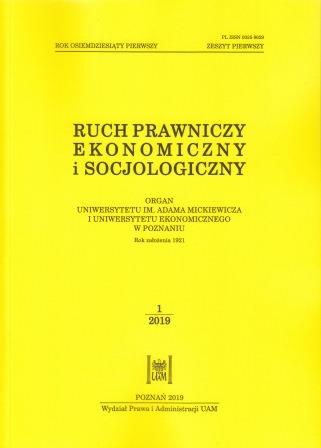Znaczenie językowe normy prawnej w poznańsko-szczecińskiej szkole teorii prawa w świetle pragmatyzmu analitycznego
The linguistic meaning of a legal norm in the Poznan-Szczecin school of legal theory in the light of analytic pragmatism
Author(s): Wojciech RzepińskiSubject(s): Education, Semantics, Pragmatism, Analytic Philosophy, Philosophy of Law, Sociology of Law
Published by: Uniwersytet Adama Mickiewicza
Keywords: legal norm; linguistic meaning; analytic pragmatism; Poznan-Szczecin school of legal theory;
Summary/Abstract: The author first reconstructs standpoints adopted by the scholars from the Poznan-Szczecin school of legal theory regarding the linguistic meaning of a legal norm. This reconstruction allows certain dilemmas related to the adoption of analytic philosophy in the theory of law to be visualized. In the next section of the article, attention is paid to the influence of Kazimierz Ajdukiewicz’s philosophy on the understanding of linguistic meaning within the School. The problem of linguistic meaning may be explained by the definition of equivalence, the core of which is a set of directives of a specific language. Finally, the author comments on the theses of Robert B. Brandom’s analytic pragmatism and the application of the latter to legal theory of Maciej Dybowski. Analytic pragmatism extends semantic research through an attempt to understand practice-related conditions.
Journal: Ruch Prawniczy, Ekonomiczny i Socjologiczny
- Issue Year: 81/2019
- Issue No: 1
- Page Range: 27-41
- Page Count: 15
- Language: Polish

